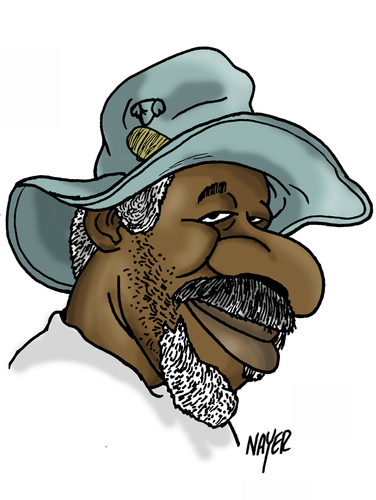Taban Lo Liyong
#132730 / vu 8912 foisTaban Lo Liyong (born 1939) is one of Africa's well-known poets and writers of fiction and literary criticism. His political views, as well as his on-going denigration of the post-colonial system of education in East Africa, have inspired criticism and controversy since the late 1960s.
His real name is Mokotiyang Rekenet, meaning "born at night". His mother later re-named him Lo-Liyong after herself, and Taban is Arabic word, meaning "tired". He was born in the Sudan and was carried “on the back” across the border into Uganda about a year later. After matriculation there, he attended Howard University and the University of Iowa Writer’s Workshop, where he was the first African to graduate in 1968. On the completion of his studies in the U.S., the tyrannical regime of Idi Amin prevented him from returning to Uganda. He went instead to neighbouring Kenya, and taught at the University of Nairobi. He has also taught at international universities in Papua New Guinea, Australia, Japan, and South Africa, and maintains that his diverse experience offers an opportunity to place Africa in a position intellectually on par with the rest of the world, thereby recognizing its various and valuable contributions to history and scholarship.
In collaboration with Henry Owuor-Anyumba and renowned Kenyan academic and writer Ngugi wa Thiong’o, he wrote On the Abolition of the English Department in 1968. Acknowledging the formidable influence of European literature over African writing, Liyong and his colleagues called for the educational system to emphasize the oral tradition (as a key traditional African form of learning), Swahili literature, as well as prose and poetry from African-American and Caribbean society.




Commentaires (0)
Ajouter commentaires